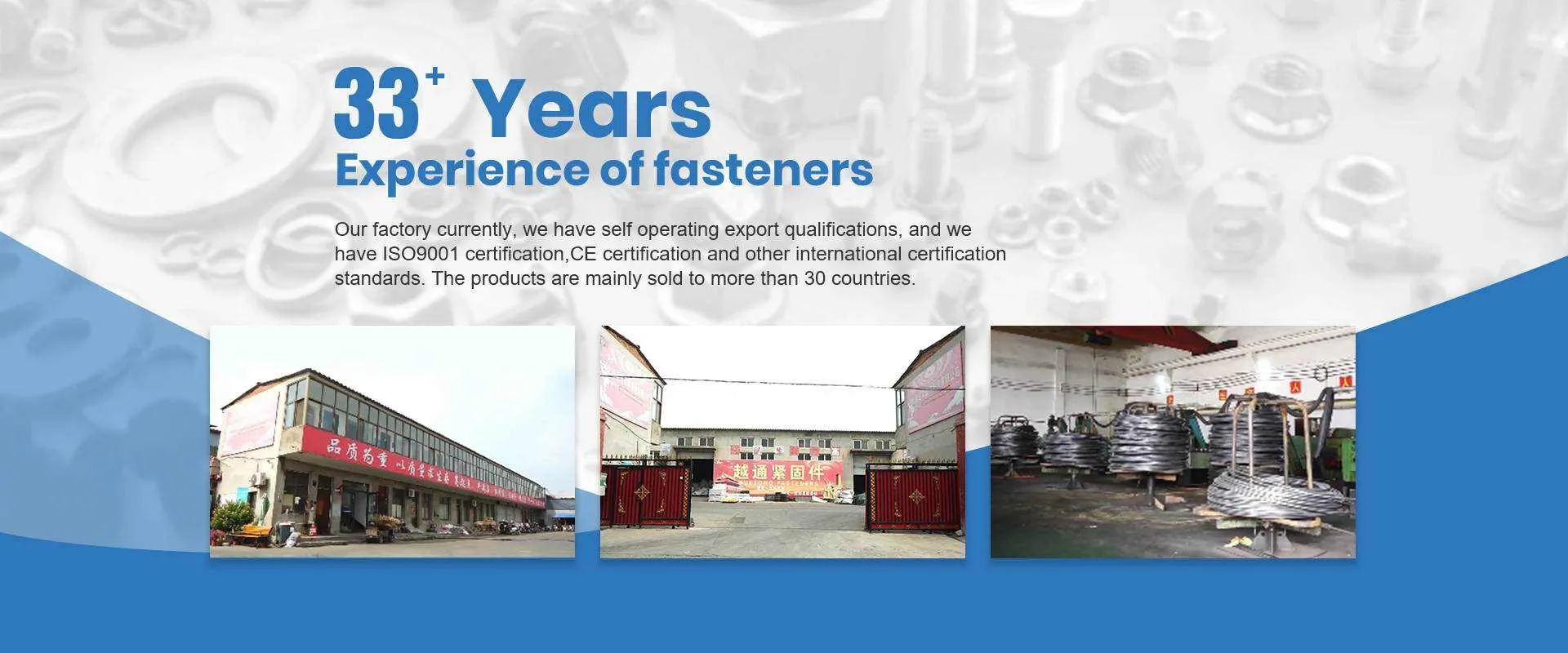Ago . 15, 2024 09:43 Back to list
Exploring the Benefits and Applications of M12 Fine Nut in Modern Engineering and Manufacturing
Understanding M12 Fine Nut The Essential Connector in Engineering
In the world of engineering and manufacturing, the importance of reliable and precise fastening components cannot be overstated. One such component that plays a pivotal role is the M12 fine nut. This seemingly simple piece of hardware is crucial in ensuring the integrity and functionality of various assemblies, from automotive systems to industrial machinery.
What is an M12 Fine Nut?
The M12 fine nut is a type of nut that is specifically designed to fit an M12 (metric 12mm diameter) bolt. The term fine refers to the thread pitch of the nut, which is typically finer than the standard thread. In most cases, an M12 fine nut has a thread pitch of 1.25 mm, compared to the more common coarse thread pitch of 1.75 mm for M12 coarse nuts. This finer thread allows for better load distribution, which can improve the bolt's grip and stability when fastening components.
Applications of M12 Fine Nuts
M12 fine nuts are widely used in various applications across multiple industries. In automotive engineering, for instance, they are often utilized in assembling engine components, suspensions, and chassis. The ability to achieve a stronger and more compact connection with fine threads is particularly advantageous in high-stress environments.
In construction and structural engineering, M12 fine nuts are essential for securing beams, columns, and other critical elements of both residential and commercial buildings. Their capacity to provide a tight fit means that structures can withstand greater loads and resist vibrations, leading to safer and more durable constructions.
Moreover, in the world of machinery and equipment, M12 fine nuts are frequently used in the assembly of conveyor belts, manufacturing equipment, and robotics. The precision offered by fine threads ensures that parts remain securely fastened, which is vital for the smooth operation of machinery.
m12 fine nut

The Advantages of Using M12 Fine Nuts
One of the primary advantages of M12 fine nuts is their ability to handle higher loads compared to coarse-threaded nuts. The fine threads create a larger surface area for contact, allowing for better friction and minimizing the risk of loosening due to vibrations. This capability makes them an ideal choice for high-performance applications.
Additionally, the finer pitch allows for more precise adjustments during assembly. Engineers and technicians often appreciate the increased control over the fastening process, as they can achieve a more exact torque specification. This control is critical in applications where safety and performance are paramount.
Selecting the Right M12 Fine Nut
When choosing M12 fine nuts, various factors should be taken into consideration. These include the material of the nut, the environment in which it will be used, and the specific requirements of the application. Common materials for M12 fine nuts include carbon steel, stainless steel, and brass, each offering distinct characteristics of strength, corrosion resistance, and weight.
The environment is also a crucial factor; for instance, applications in marine or chemical environments may require specially treated nuts to resist corrosion.
Conclusion
In summary, M12 fine nuts are a vital component in many engineering and manufacturing applications. Their unique attributes of enhanced load-bearing capacity, precise adjustments, and robust performance make them indispensable in modern assembly techniques. As industries continue to evolve and seek higher levels of efficiency and reliability, the role of high-quality fastening components like M12 fine nuts will only become more significant. Understanding these small yet powerful connectors can be the key to achieving success in engineering projects and innovations.


